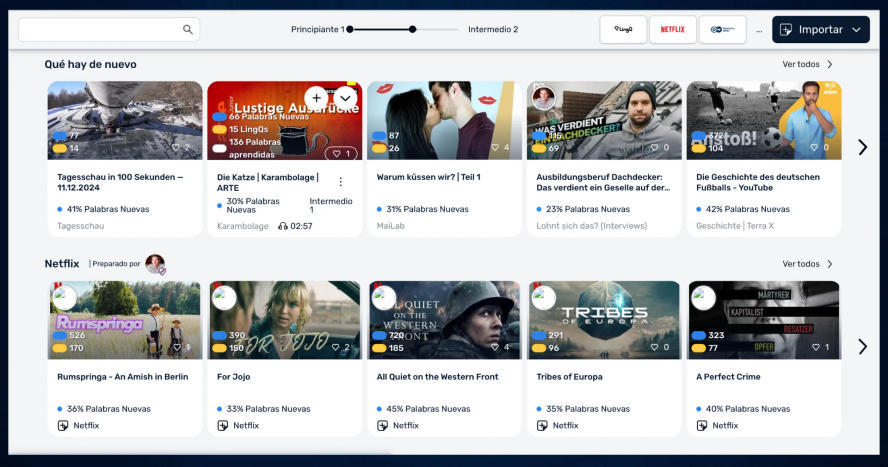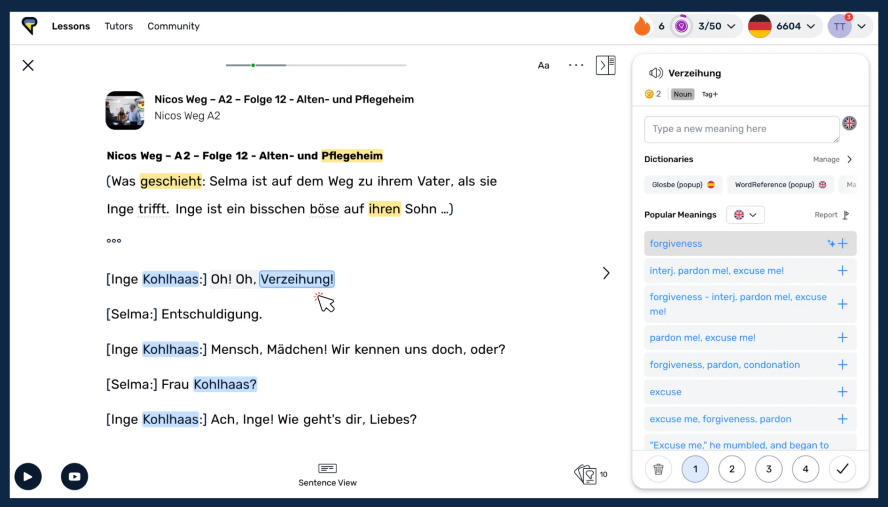Once you’ve been learning a new language for a while, you may notice that the initial, rapid progress has slowed down. Welcome to the intermediate plateau—a phase in language learning that can feel more like an endless trudge versus an uphill climb. However, this is an essential part of language learning. In this post, I’ll talk about how to approach the plateau as a period of growth and fluency-building.
Understanding the Plateau
The early stages of language learning are often quite encouraging. High-frequency words and phrases appear frequently, and your progress feels tangible. However, as you advance towards the intermediate level, the journey becomes less immediately rewarding. Progress slows as you encounter more complex grammar, less frequent vocabulary, and nuanced cultural contexts.
But the plateau isn’t a dead end. It’s a critical phase where consistent, subtle improvements build the foundation for advanced fluency. Don’t think of the intermediate plateau as stagnation, but rather as “language maintenance mode,” where every interaction adds (slowly but surely) to your skill set.
Strategies for Navigating the Plateau
1. Shift Your Perspective
Your mindset is a key element in language learning. To overcome the intermediate plateau, we first have to see this period as an opportunity. This is the time to consolidate your knowledge and build confidence. Yes, progress may be slower, but you now have a strong enough grasp of the language to dive more deeply into content that really interests you, Whether it’s movies, books, or podcasts, you can focus on enjoying the process rather than racing toward fluency.
2. Continue Listening and Reading
There is a synergy between listening and reading. It’s a powerful means of progressing in a language, especially in the midst of the intermediate plateau. The goal is to expand your vocabulary and attune yourself to increasingly advanced, authentic content. This dual input reinforces your understanding of vocabulary, grammar, and pronunciation, but also builds your knowledge of the language gradually.

3. Try the Speed LingQing Technique
I’ve acquired this strategy while learning Persian. If I’m reading more authentic content (like news articles or podcasts) on LingQ, I don’t stress about powering through reading the entire transcript. Instead, I prioritize reinforcing words that I haven’t fully learned.
On LingQ, words and phrases that I’ve encountered (but haven’t fully learned) are automatically marked yellow. Completely new, unknown words are blue. Instead of reading linearly through the text, I’ll jump around, focusing on yellow and blue words, using the surrounding text to reinforce meaning. This approach is more engaging than studying vocabulary in isolation.

When in the intermediate plateau, my goal is to increase my known word count. I do this incrementally. For example, if I have 10,000 known words, my goal is to read and listen my way to 15,000 known words
4. Break the Monotony with Variety
Staying motivated during the plateau often requires a change in routine. Experiment with different types of content—fiction, non-fiction, music, or documentaries. Switching formats and topics keeps learning fresh and engaging.
5. Embrace Small Wins
Fluency is not an overnight achievement. Celebrate incremental victories, such as understanding a difficult podcast or using a complex sentence correctly. Learning a language is a long, gradual process. This is especially true during the intermediate phase. Allowing yourself to celebrate the small victories keeps you in the right mindset to stay the course as you strive towards larger milestones.
Avoiding Common Pitfalls
Overloading on Grammar
While grammar study has its place, avoid becoming overly focused on perfection. Language is about communication, not just rules. At the intermediate level, your priority is conversational fluency and strong comprehension skills. Strengthen your grasp and intuition with the language through exposure and practice instead of drilling grammatical perfection.
Neglecting Speaking Practice
The plateau is an excellent time to start speaking more regularly. Even if you make mistakes, speaking reinforces what you’ve learned and identifies areas needing improvement.
Relying Solely on Lists
I don’t suggest studying vocabulary out of context. Words learned in isolation are harder to retain. Instead, encounter them naturally in content you enjoy. Time is better spent exposing yourself to large amounts of the language through reading and listening. You’ll develop a larger vocabulary and a more personal feel for the language.
The Key to Success: Steady Engagement
So, how do you overcome the intermediate plateau? First off, understand that this is not a phase to skipped or trudged through, but the chance to solidify what you’ve learned and more closely align your language learning with your interests. Language learning should be enjoyable. When you’re engaged, you’re more likely to stay consistent. Explore, experiment, and immerse yourself in your target language. During this phase, progress isn’t always noticeable, but trust that—with patience and the right techniques—fluency is within reach.









comments on “Breaking Through the Intermediate Plateau”